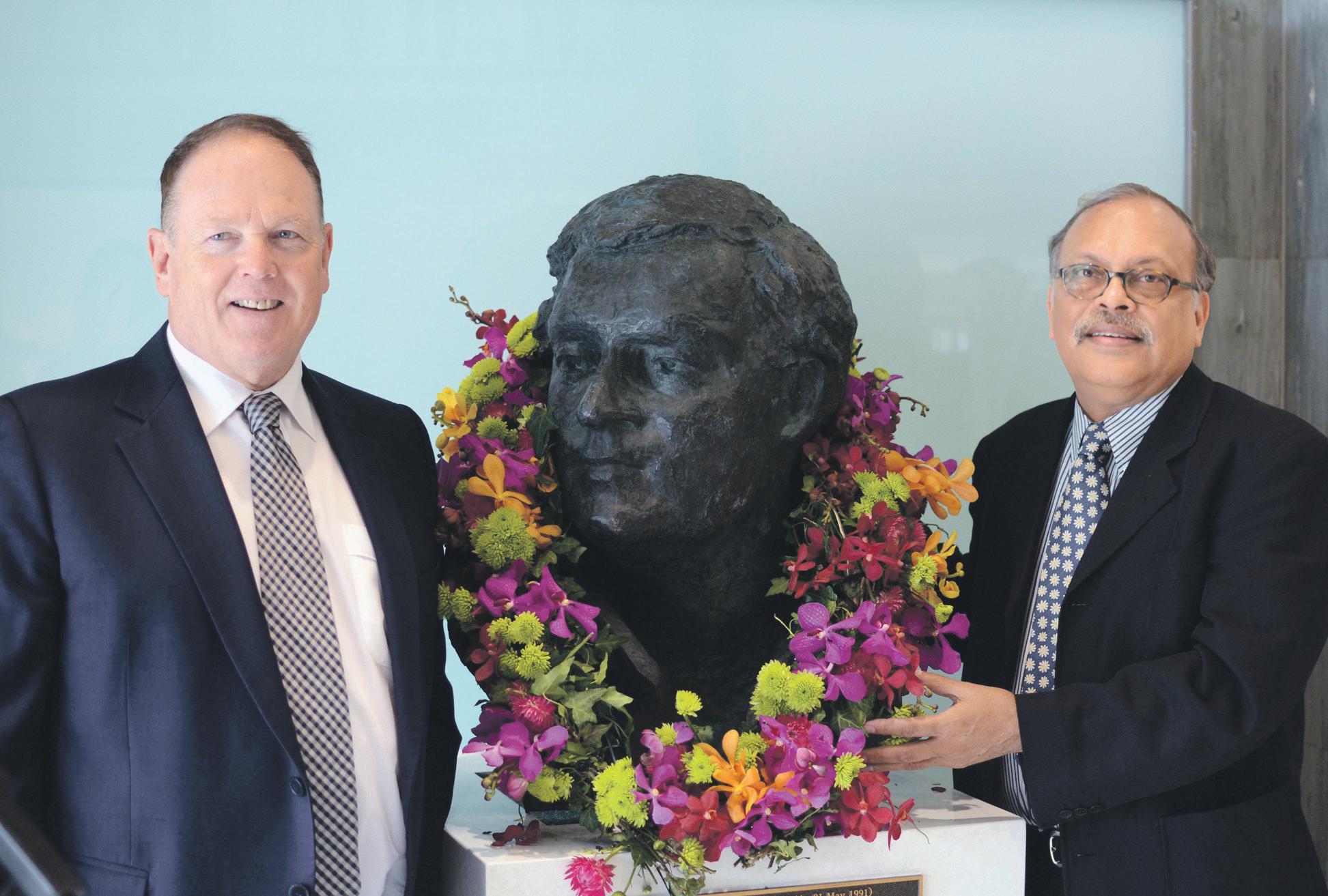
2 minute read
UTS unveils Rajiv Gandhi bust
from 2012-11 Sydney (1)
by Indian Link
The former Indian Prime Minister’s progressive economic reforms are lauded and remembered
BY MALAVIKA SANTHEBENNUR

Abust of former Indian Prime Minister Rajiv Gandhi was unveiled at the University of Technology, Sydney (UTS) on October 18.
The bust was presented to UTS by the Indian Council for Cultural Relations (ICCR), New Delhi, which is part of the Indian Government. Mr Arun Kumar Goel, Consul General of India in Sydney, and UTS Vice-Chancellor Prof. Ross Milbourne officially marked the donation of the bust by placing a garland around it. The ICCR has established the Rajiv Gandhi Visiting Chair of Contemporary Studies at UTS, its first academic chair in Australia.
Political scientist Prof. Ujjwal Kumar Singh from the University of Delhi was the first academic Rajiv Gandhi Visiting Chair this year, and nominations are now being taken for the next incumbent.
The question on some of the attendees’ minds was, why Rajiv Gandhi?
Prof. Milbourne expressed his pleasure at receiving the former prime minister’s bust at UTS and conveyed his admiration for him.
“I personally am pleased about it because I have always, as an economist, regarded Rajiv Gandhi very highly,” he said. “And for those who may or may not know, he really was one of the great fathers of economic modernisation. He laid the foundation for a lot of deregulation, and a lot of the economic growth that we’ve seen in India has come from the work he did. So it’s a particular pleasure for me as an economist, to have his bust here.”
Mr Goel also expressed his joy at unveiling the Rajiv Gandhi bust, saying that this gesture is not only an example of growing relations between the Consulate General of India in Sydney and the University, but is happening ‘at a very opportune time’, right after the establishment of the Rajiv Gandhi Chair. He also heaped praises on the former prime minister.
“As you all know, Rajiv Gandhi was considered to be a most visionary prime minister; the rare prime minister who understood India’s problems. After leading the Congress to a major election victory in 1984, he brought about many important changes in the political and more importantly, in the economic landscape,” he said.
Mr Goel also added that Rajiv Gandhi initiated the process of economic liberalisation in 1985.
“When asked how he would like to be remembered, Rajiv Gandhi said he would like to be remembered as someone who brought India into the 21st century parallel with the most advanced countries in the world, out of the branding of India as a developing country to the status of a developed nation,” he added.
Prof. Milbourne said Australian Prime Minister Julia Gillard’s visit to India recently had refocused attention on the importance of India as a major world and regional power and the opportunities for Australia through trade, investment and education.
“Cultural and social understanding between neighbours is crucial to achieving positive outcomes,” he said.
Rajiv Gandhi (1944-1991) was the sixth Prime Minister of India (1984-1989). He took office after his mother, Indira Gandhi, was assassinated on October 31, 1984. He was the youngest Prime Minister of India to take office at the age of 40, and he was tragically assassinated on May 21, 1991. He was posthumously awarded the Bharat Ratna, India’s highest national award, in 1991.
Rajiv Gandhi laid the foundation for a lot of deregulation, and a lot of the economic growth that we’ve seen in India has come from the work he did (Prof. Ross Milbourne)
“Rajiv Gandhi said he would like to be remembered as someone who brought India into the 21st century, parallel with the most advanced countries in the world, out of the branding of India as a developing country to the status of a developed nation (Mr. Arun Kumar Goel)









